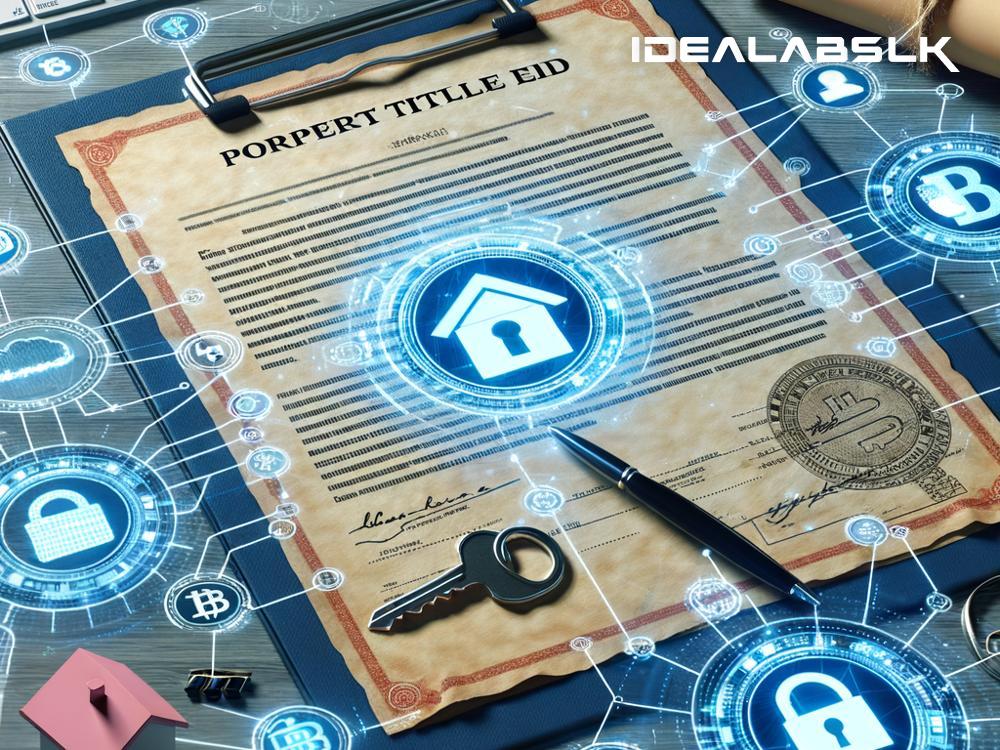In the intriguing, fast-paced world of technology, blockchain is a term that's catching a lot of buzz — and for good reason. Most recognized for its role in cryptocurrency systems like Bitcoin, blockchain technology offers a secure and transparent way to record transactions. But there's more to this technology than just digital coins. One of the areas where blockchain promises to make a significant impact is in enhancing property title and ownership security. Imagine holding a key that not only opens your home's front door but also securely validates its ownership exclusively to you. That’s the level of security and convenience blockchain is beginning to offer in the real estate world. Let’s break this down into simpler terms and understand how blockchain is revolutionizing property title and ownership security.
What is Blockchain, anyway?
Think of blockchain as a digital ledger that’s shared among various users. This ledger records information in blocks, and once full, the blocks are closed and linked to the previously filled block, creating a chain. Hence the term "blockchain." The magic here lies in its decentralization — it's not stored in one single place but distributed across a network of computers, making it highly secure. Everyone in the network has access to the entire database and its complete history. No single entity has control, and no single point of failure can corrupt the data, making blockchain a groundbreaking technology in terms of security and transparency.
Transforming Property Titles and Ownership
When it comes to buying or selling property, the process traditionally involves lots of paperwork, third-party intermediaries, significant time, and, unfortunately, opportunities for fraud. Here's how blockchain is changing the game:
1. Simplifying Transactions
Blockchain could significantly simplify the process of transactions. With blockchain, property records are stored on a secure, immutable ledger. When a property is sold, the transaction is recorded instantly and permanently, eliminating the need for cumbersome paperwork and streamlining the entire process. This not only makes buying or selling property more efficient but also more transparent.
2. Enhancing Security and Reducing Fraud
One of the biggest advantages of using blockchain in real estate is the level of security it offers. Once data is recorded in a block, it cannot be altered without altering every subsequent block and the consensus of the network, which is practically impossible. This makes any attempt at fraud clear and easily detectable. For instance, someone trying to claim ownership of a property fraudulently would find it incredibly difficult, as the real ownership can be instantly verified through the blockchain.
Furthermore, since each transaction and its associated details are encrypted and uniquely hashed, it becomes a formidable task to hack or corrupt the system. This aspect dramatically enhances the security of property titles and ownership information.
3. Decreasing the Risk of Errors
Human error can be a significant issue in the traditional process of recording and transferring property titles. Misplaced documents or incorrectly entered information can lead to disputes and legal headaches. With blockchain, every transaction is recorded accurately and is transparent for all parties to see, greatly reducing the chance of errors.
4. Providing Cost Efficiency
By eliminating the need for middlemen – such as lawyers and brokers – blockchain can significantly reduce the costs associated with property transactions. The technology facilitates direct transactions between buyers and sellers, making the process not just faster but also more economical.
The Future of Real Estate with Blockchain
While the integration of blockchain into real estate is still in early stages, its potential is immense. Several startups and consortia are pilot testing the use of blockchain for recording property ownership and transactions. Governments in countries like Sweden, Georgia, and the United Arab Emirates are exploring ways to shift their public property records onto a blockchain.
As adoption grows, we can expect to see a real estate market that is more transparent, efficient, and secure. Blockchain has the power to transform not just how we handle property transactions, but who can access the market, potentially making property ownership more achievable for people around the world.
In Conclusion,
By promising a secure, transparent, and efficient way to handle property titles and ownership data, blockchain technology is poised to revolutionize the real estate industry. As we move into a future where transactions are smooth, secure, and virtually immediate, the dream of blockchain-enhanced property transactions is becoming a reality. The implications for market transparency, reduced fraud, and improved efficiency are profound, marking just the beginning of blockchain's impact on our world.

